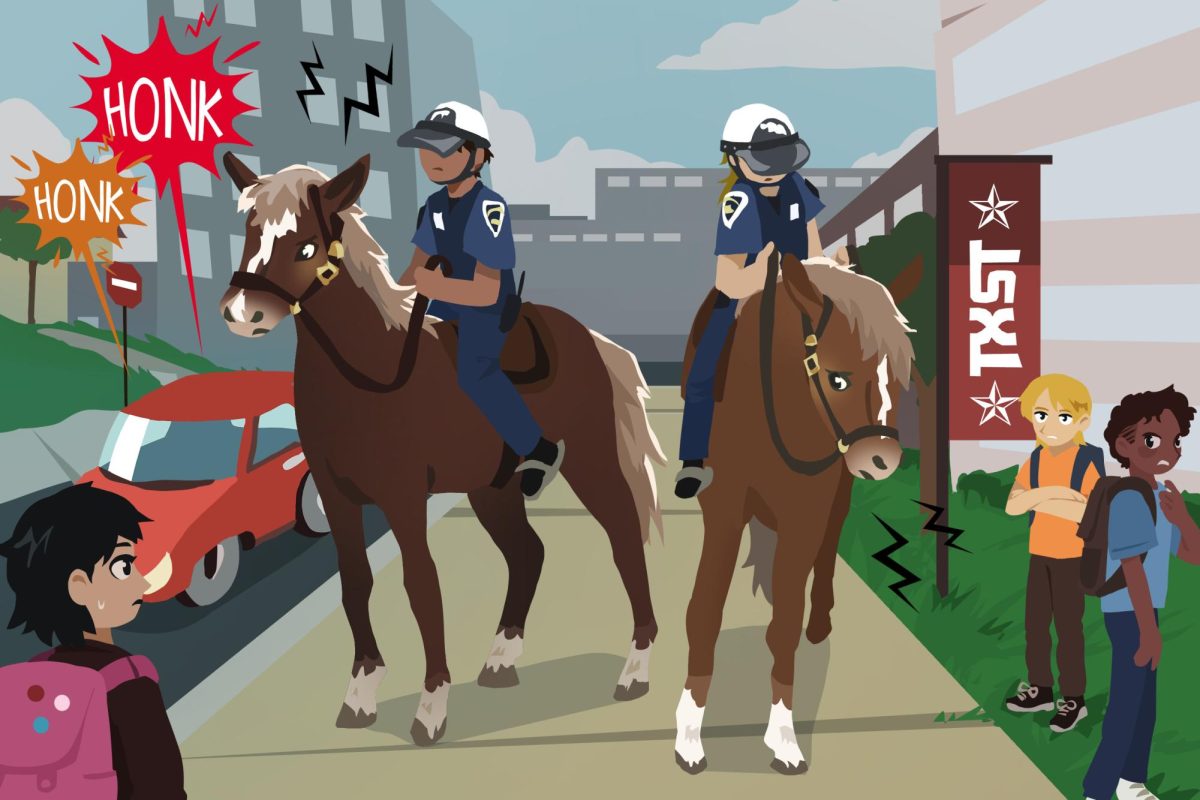The college-aged population is falling into a stagnant mode of interacting with the world. Students are entering college with preconceived notions of what their beliefs mean without any further learning or critical analysis of their own beliefs.
This phenomenon shows itself in introductory philosophy courses wherein many students from either side of the political spectrum enter discourse with professors or their peers and state their beliefs as factual.
It seems their overall understanding of their own beliefs and the beliefs of others are solely anecdotal or are supported using their own personal experience as evidence.
Because human beings are social animals and rely on community, it is understandable that one would find themselves adopting the views of their parents or the views that local authority figures hold.
It is understandable for one to grow up with these imposed beliefs, but these beliefs should be amended as they encounter other people of different backgrounds. The problem lies with how students are developing their beliefs and how they then choose to interact with others.
Sparing the long, multi-faceted conversation about how human beings come to develop their beliefs, college-aged students have not learned the tools by which to engage with their own ideas critically. They merely adopt the aesthetic of the group that speaks to their personal experience.
Given the recent rise of many movements students only understand them at a mere surface level. They see these movements that are based in a theoretical foundation and behave in a way that suggests they see the movement as only a lens by which they can see the world in a way that lines up with their own experiences.
There is nothing wrong with gravitating toward a movement because it speaks to one’s personal life experience. But, merely adopting the aesthetic of the movement to confirm one’s own biases and affirm beliefs without educating oneself as much as possible and being critical of their own views first is to the detriment of the person and perhaps the movement they may subscribe to.
If one truly believes in what they are aligning themselves with, then the responsibility is now on the subscriber to do the grunt work of learning about what they have opted into.
This lack of understanding is not merely isolated to how the individual understands what they believe but also affects their interactions with others.
The lack of understanding and the various means by which the populous has for communicating with one another only results in a toxic culture of misunderstood and incorrectly criticized beliefs.
Students do not understand their own beliefs, let alone the beliefs of others. The discourse is operating from a place of assumption mostly based on word-of-mouth talking points that are usually simplified, weaker arguments.
A strawman argument, for example, showcases a scenario where one refutes an argument that was never even presented by the opposite side. Thus, creating an argument to fit their narrative and convenience.
This issue is found within college students and not society at large. Society is limited in its access to information and a myriad of factors can impact whether they engage in learning the theory behind these movements.
The concern for informed participation is illustrated quite clearly when one looks at the feminist movement that primarily deals with the concerns of white women, which at times, boils down to mere identity and symbolism, versus the concerns of womanists who face violence, poverty, racism, religious prejudice homophobia, transphobia and real, tangible oppression in their daily lives.
The college student, granting they have the time, has ample resources for educating themselves and if substantive, productive conversation is to be had one should be trying their best to immerse themselves in the theories they subscribe to.
Misrepresenting a movement one wholeheartedly believes in will do more harm than good. If students are merely adopting the aesthetic of progress without properly informing themselves, they operate purely in the symbolic and no real progress is ever made.
– Jacob Montgomery is a philosophy senior
Opinion: Students should be learning the theory behind their beliefs
March 30, 2020
A cartoon man with a thought bubble above his head containing question marks, books, a group of people and a building.
Donate to The University Star
Your donation will support the student journalists of Texas State University. Your contribution will allow us to purchase equipment and cover our annual website hosting costs.

























